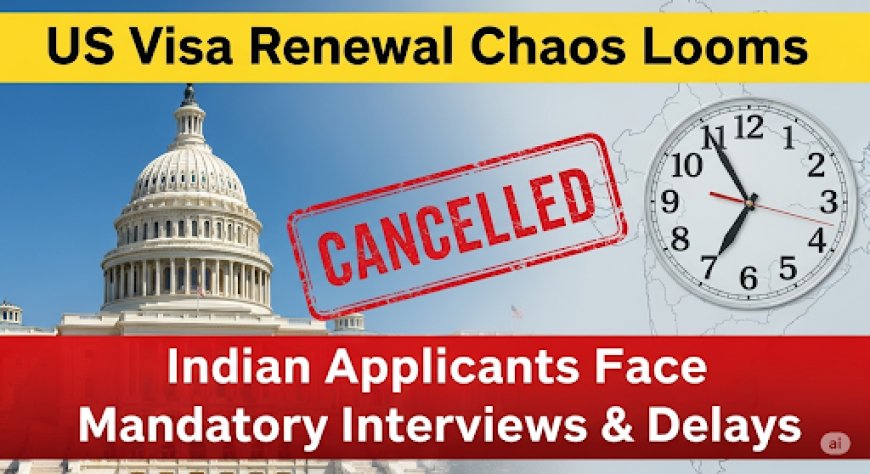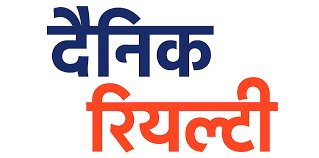US Visa Dropbox Program Ends: Massive Delays Feared for Indian Applicants
US scraps popular Dropbox visa renewal program from Sep 2, 2025. Indian workers, students face mandatory interviews, longer wait times. Learn impact & prepare.

Breaking News Alert! The United States is poised to eliminate one of its most widely utilized visa conveniences, the Dropbox interview waiver program, effective September 2nd, 2025. This seismic shift will directly impact hundreds of thousands of Indian professionals, students, and families seeking to renew most categories of US non-immigrant visas, ushering in an era of mandatory in-person interviews and potentially unprecedented delays. For years, the Dropbox option offered a crucial fast-track for eligible travelers with unblemished visa histories, saving immense time, especially for India, a nation that has been one of the program's largest beneficiaries. Now, under new legislation, the shortcut is closing, compelling applicants to brace for a dramatically altered and more challenging renewal process.
What is the US Dropbox Visa Program and Why is it Ending?
The Dropbox interview waiver program has been a cornerstone of US visa processing for many, particularly in high-demand countries like India. It allowed qualified individuals to bypass the traditional in-person interview, submitting their necessary documents at a designated location, thereby streamlining renewals and significantly reducing wait times. This convenience is now being phased out as part of President Donald Trump’s sweeping "one big beautiful bill act," signed into law on July 4th. Officials assert that the primary objective behind this drastic change is to bolster national security and enhance the thoroughness of applicant screening. However, critics and immigration advocates are sounding alarms, warning that the move could trigger widespread disarray and extensive processing backlogs.
Who Will Be Affected by the New Interview Rules?
The cessation of the Dropbox program casts a wide net, impacting nearly all non-immigrant visa renewal categories. This includes critical visa types such as H1B (for skilled workers), H4 (for dependents of H1B holders), L1 (for intra-company transfers), F and M (for academic and vocational students), O1 (for individuals with extraordinary ability), and J (for exchange visitors). Previously, children under 14 and seniors over 79 enjoyed an exemption from in-person interviews; however, this will no longer be the case under the new regulations, meaning all applicants, regardless of age, must now face a consular officer in person. This comprehensive change signifies a significant procedural hurdle for a vast number of applicants globally, with a particularly acute impact on nations like India.
How Will India Be Impacted by the Dropbox Scrapping?
The implications for India are projected to be severe, exacerbating an already challenging situation. India currently contends with some of the longest visa wait times in the world. The elimination of the Dropbox option is expected to create an unprecedented surge in demand for in-person interview slots, inevitably extending delays by many months. This ripple effect could severely disrupt critical business projects, especially for tech companies heavily reliant on H1B staff, potentially leading to project slowdowns. Furthermore, Indian students admitted to US universities might encounter significant setbacks, with their academic timelines pushed back considerably due to prolonged visa processing. Evidence of this impending disruption is already surfacing, with some Dropbox slots for August and September having been abruptly cancelled, forcing applicants to reschedule for in-person interviews.
Are There Any Exceptions to the New Interview Requirement?
While the new policy is largely comprehensive, a few specific exceptions remain for the in-person interview waiver. Diplomatic or official visas, such as those categorized under AG, NATO, and TECRO, will still qualify for waivers. Additionally, a limited subset of B1/B2 tourist and business visa renewals might retain the option to skip interviews, albeit under stringent conditions. Crucially, even in these exceptional cases, consular officers retain the discretion and authority to require an in-person interview if they deem it necessary. This highlights a broader shift in US immigration policy, moving towards greater scrutiny and away from previous facilitation measures.
What Should Indian Visa Applicants Do Now?
With the September 2nd, 2025 deadline rapidly approaching, Indian applicants are strongly advised to proactively plan for these significant changes. The era of quick and convenient US visa renewals is drawing to a close for many, necessitating a shift in strategy. Applicants should mentally and logistically prepare for substantially longer wait times and the mandatory requirement of an in-person interview. Experts urge individuals to commence their renewal processes much earlier than usual, gather all necessary documentation meticulously, and be ready for a face-to-face scrutiny with a consular officer. This emphasizes a need for greater foresight and readiness to navigate a more stringent and time-consuming visa renewal landscape.
- FAQ Section
- When will the US Dropbox visa program officially end? The US Dropbox interview waiver program is set to officially end on September 2nd, 2025.
- Which visa categories are most affected by this change? Most non-immigrant visa categories, including H1B, H4, L1, F, M, O1, and J, will be affected, requiring mandatory in-person interviews for renewal.
- Will children and seniors still be exempt from interviews? No, under the new policy, children under 14 and seniors over 79 will no longer be exempt; all applicants must now face a consular officer in person.
- Why is the US ending the Dropbox visa renewal program? The program is ending as part of President Donald Trump’s "one big beautiful bill act," with officials stating the goal is to enhance security and tighten screening for applicants.
- What can Indian applicants expect regarding visa wait times? Indian applicants should expect significantly longer visa wait times, potentially extending by months, due to the increased demand for in-person interview slots.







































